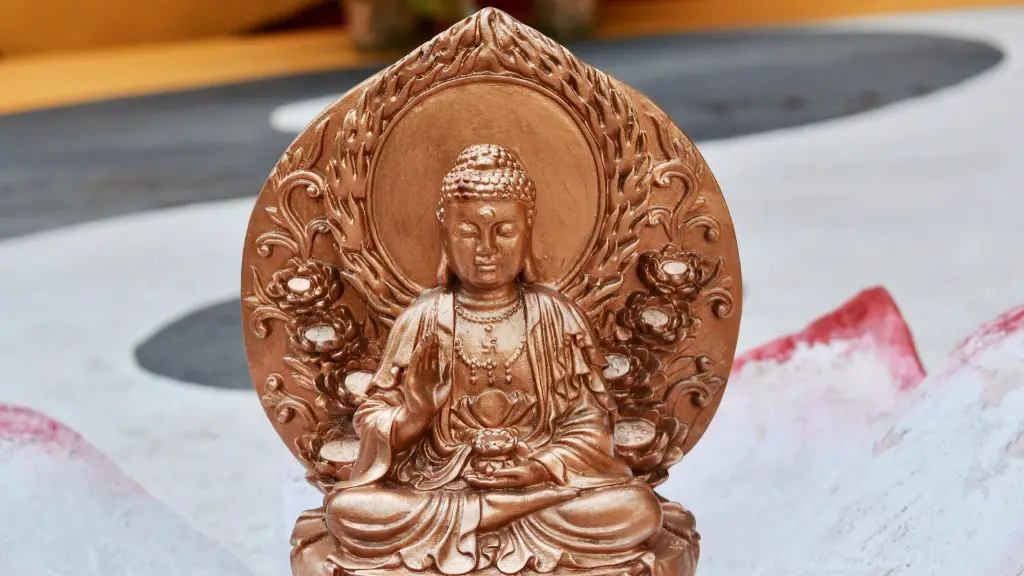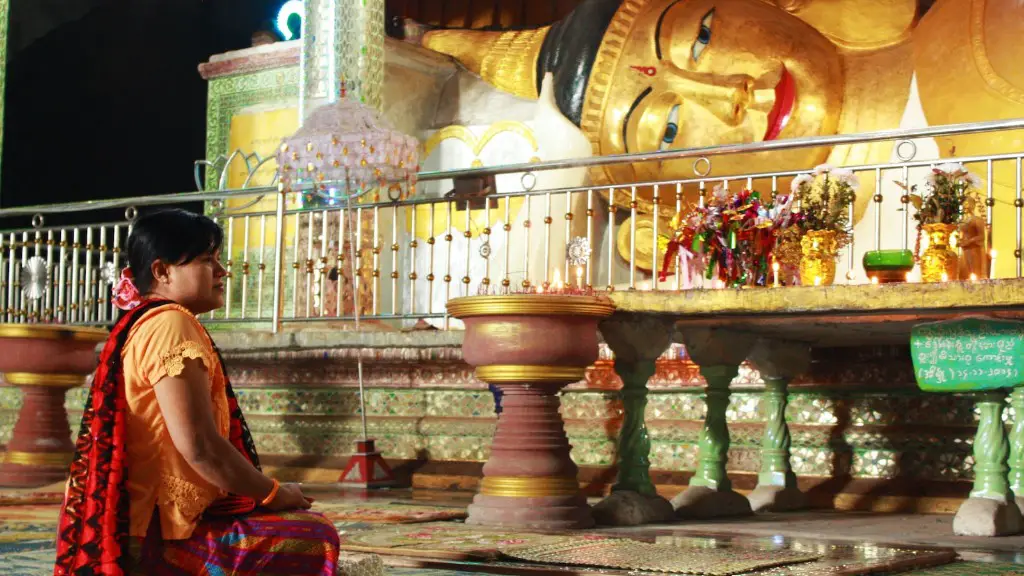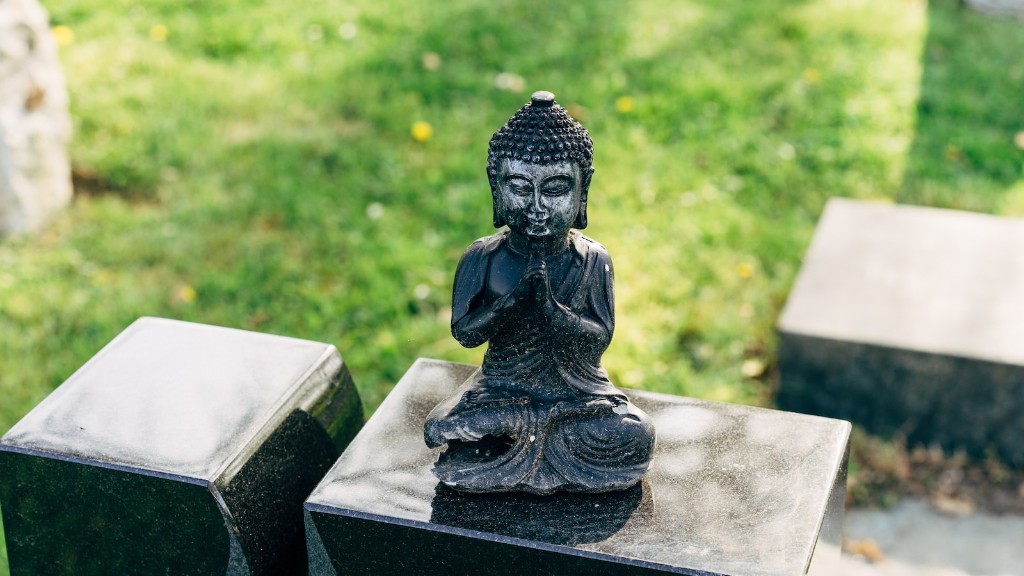Buddhism is a religion and philosophical tradition that originated in India. Around the time of the Buddha, Siddhartha Gautama, teaching appeared in India that was supposed to reform and renew the existing belief systems. Gautama taught that nothing is permanent, that change is inevitable, and that suffering is caused by craving and attachment. He also taught that nirvana, or liberation from suffering, is possible by following the path of the Buddha, or the Eightfold Path.
The Four Noble Truths are the central teachings of the Buddha and form the foundation of Buddhist belief. They are:
1. Suffering exists and is inherent in life
2. Suffering is caused by our desires and attachments
3. Suffering can be ended by freeing ourselves from our desires and attachments
4. The path to freedom from suffering is the Noble Eightfold Path
What are the 3 main beliefs of Buddhism?
Buddhism is a religion that is based on the teachings of Siddhartha Gautama. The main principles of this belief system are karma, rebirth, and impermanence. Buddhists believe that karma is the result of a person’s actions and that it determines their future. rebirth is the belief that after someone dies, they are reborn into another person or animal. impermanence is the belief that everything is temporary and that nothing lasts forever.
The Five Precepts are a set of guidelines for living a moral and ethical life. They are:
1. Refrain from taking life
2. Refrain from taking what is not given
3. Refrain from the misuse of the senses
4. Refrain from wrong speech
5. Refrain from intoxicants that cloud the mind.
These precepts provide a framework for living a good life, and following them will lead to a life of happiness and contentment.
What is one of the most important beliefs in Buddhism
Buddhism teaches that there is no permanent self or soul, so reincarnation is not the same as rebirth. Instead, it is the process of continual becoming. Buddhists believe that the quality of each life is determined by the karma, or actions, of the previous life.
The Four Noble Truths are the cornerstone of the Buddhist teachings. They explain the basic principles of Buddhism and provide a framework for understanding the human condition.
The first truth is that life is suffering. This doesn’t mean that life is bad, but that it is full of hardships and difficulties. The second truth is that the cause of suffering is desire. We suffer because we want things that we can’t have, or because we don’t want things that we do have. The third truth is that we can end our suffering by giving up our desires. This doesn’t mean that we have to become ascetics or renounce all our possessions, but that we need to learn to let go of our attachment to things. The fourth truth is that there is a path to the end of suffering. This path is the Eightfold Path, which is a set of guidelines for ethical and moral living.
The Four Noble Truths provide a helpful framework for understanding the human condition. However, they leave much unexplained. For example, they don’t explain why we suffer in the first place, or why some people seem to suffer more than others. They also don’t explain what happens to us after we die. But despite these limitations, the Four Noble Truths are still
Is Buddhism a faith or religion?
Buddhism is one of the oldest religions in the world. It was founded by Siddhartha Gautama, who is also known as the Buddha. Buddhism is based on the teachings of the Buddha. The Buddha was born in India and lived from about 563 BC to 483 BC. He was a spiritual teacher and he taught people how to live a good life. Buddhism spread throughout Asia and it now has about 470 million followers.
Buddhism and Christianity are two very different religions. Buddhism is generally non-theistic and does not believe in a Creator God, while Christianity is at its core monotheistic and relies heavily on God as a source of divine values. There are many other fundamental differences between the two religions as well, such as their views on the nature of reality and the afterlife.
How do Buddhists worship?
Buddhists worship at temples or monasteries as a form of devotion and respect. At these locations, they often meditate and pray. Some also maintain shrines within their homes as a place to worship privately. Common offerings made at shrines include fresh flowers, lights, lamps, and burning incense. These acts are seen as a way to show respect to the Buddha and accumulate merit.
The Eight Precepts are:
Abstaining from killing
Abstaining from stealing
Abstaining from sexual activity
Abstaining from telling lies.
What are Buddhist beliefs about death
Buddhist teaching views life and death as a continuum, believing that consciousness (the spirit) continues after death and may be reborn. Death can be an opportunity for liberation from the cycle of life, death and rebirth.
Buddhism is a tradition focused on spiritual liberation, but it is not a theistic religion. The Buddha himself rejected the idea of a creator god, and Buddhist philosophers have even argued that belief in an eternal god is nothing but a distraction for humans seeking enlightenment. Buddhism teaches that the way to liberation is through our own efforts, and that we each have the potential to become enlightened beings.
Do Buddhists believe in karma?
Buddhists believe that karma has implications beyond this life. Bad actions in a previous life can follow a person into their next life and cause bad effects (which Westerners might interpret as “bad luck”). Even an enlightened one is not exempt from the effects of past karma.
The ‘Middle Way’ is the Buddhist way of life; a self-development progression through the Noble Eight-fold Path which comprises Right Understanding, Right Thought, Right Speech, Right Action, Right Livelihood, Right Effort, Right Mindfulness and Right Concentration. The goal of the ‘Middle Way’ is to develop a state of perfect peace and harmony, free from all attachments and desires. This can only be achieved through a life of moderation, balance and right understanding.
What are the 7 rules of Buddhism
1. Clear Viewpoint: Don’t just believe anything just because you saw it or you heard it.
2. Values: We end up digging a hole so deep that it is hard for us to find a way back home.
3. Words that Inspire: Actions in Positive Direction.
4. Efforts with Impact: Be Mindful.
5. Concentrate Right:
There is no concept of punishment or reward in Buddhism, nor is there a divine being who decides who goes to hell or heaven. There is merely the illusory results of our thought, words and deeds, which we call karma.
Can anyone be a Buddhist?
It is not necessary to be born into Buddhism or to have Buddhist parents in order to identify as a Buddhist. People of any race, nationality, or socioeconomic background can take part in a ceremony known as taking refuge in the Triple Gem, which is how people wishing to become Buddhists typically identify themselves.
Buddhists believe in a cycle of life, death, and rebirth called samsara. What someone is reborn as depends on their actions in their previous life, known as kamma. The cycle of rebirth is an ongoing cycle and it is believed that we will be reborn again and again until we reach nirvana, which is a state of enlightenment.
Final Words
Buddhists believe in the Four Noble Truths: suffering exists; suffering has a cause; suffering can be ended; and there is a path to the end of suffering. They also believe in karma (the law of cause and effect) and in rebirth. Buddhists strive to live a life of compassion, moral rectitude, and wisdom.
There are three main beliefs in Buddhism: the Four Noble Truths, karma, and rebirth. The Four Noble Truths are the Buddha’s teachings on suffering, its causes, and its cessation. Karma is the law of cause and effect, and rebirth is the belief that after this life, we are reborn into another.



